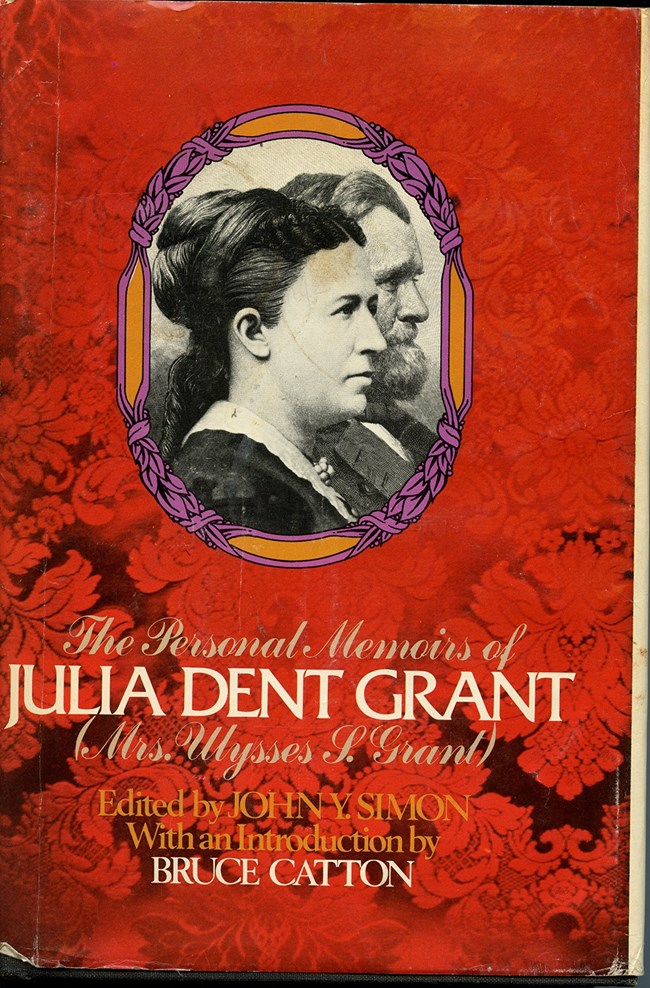Last updated: March 11, 2020
Article
The Personal Memoirs of Julia Dent Grant

NPS/Ulysses S. Grant Library Collection
Julia initially wanted her reflections to remain private. She commented in an 1890 article for the New York World that her memoir was “purely a family volume, and that I want it for the children. I had no idea of publishing it. I wanted to leave it to my family as a sort of history, and if they cared to publish it they could do so.” However, as the 1890s continued and Julia finished the manuscript, she began to have second thoughts and explored the possibility of publishing her memoir for profit. Several problems emerged, however. One publisher offered “liberal terms,” according to Julia, but believed the book was “too near, too close to the private life of the General for the public, and I thought this was just what was wanted.” She rejected one offer to sell the book by subscription and another that offered a $25,000 advance, stating that she expected at least $100,000 for the advance. According to the historian John Y. Simon, “great profits from her husband’s book created an unrealistic view of the value of her own.” The book remained unpublished when Julia died in 1902.
For many years the Grant family kept Julia Dent Grant’s memoirs private. Few scholars were allowed to see the manuscript, and most who did refrained from directly quoting it. The daughters of General Ulysses S. Grant III—great granddaughters to Julia—finally allowed the full manuscript to be edited by Dr. Simon and published by Southern Illinois University Press. The Personal Memoirs of Julia Dent Grant were finally released in 1975. Today the Memoirs act as an important historical resource for interpreting the lives of the Grants, Dents, and enslaved people who lived at White Haven in the nineteenth century. They also speak to the loving relationship between Ulysses and Julia. As Dr. Simon recalled in the book’s foreword, “Julia Grant’s accurate memory of the life she shared with her husband represents a last witness of their love.”
